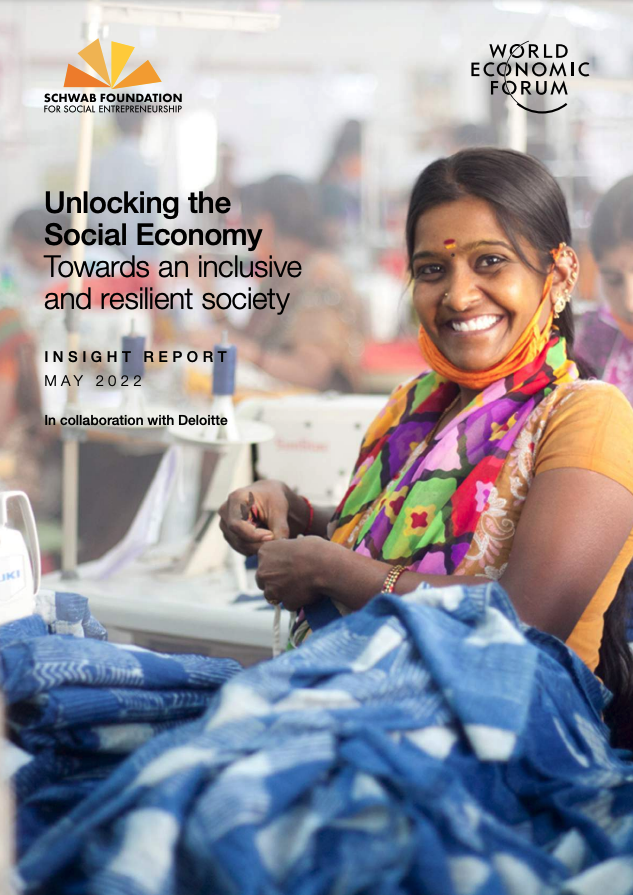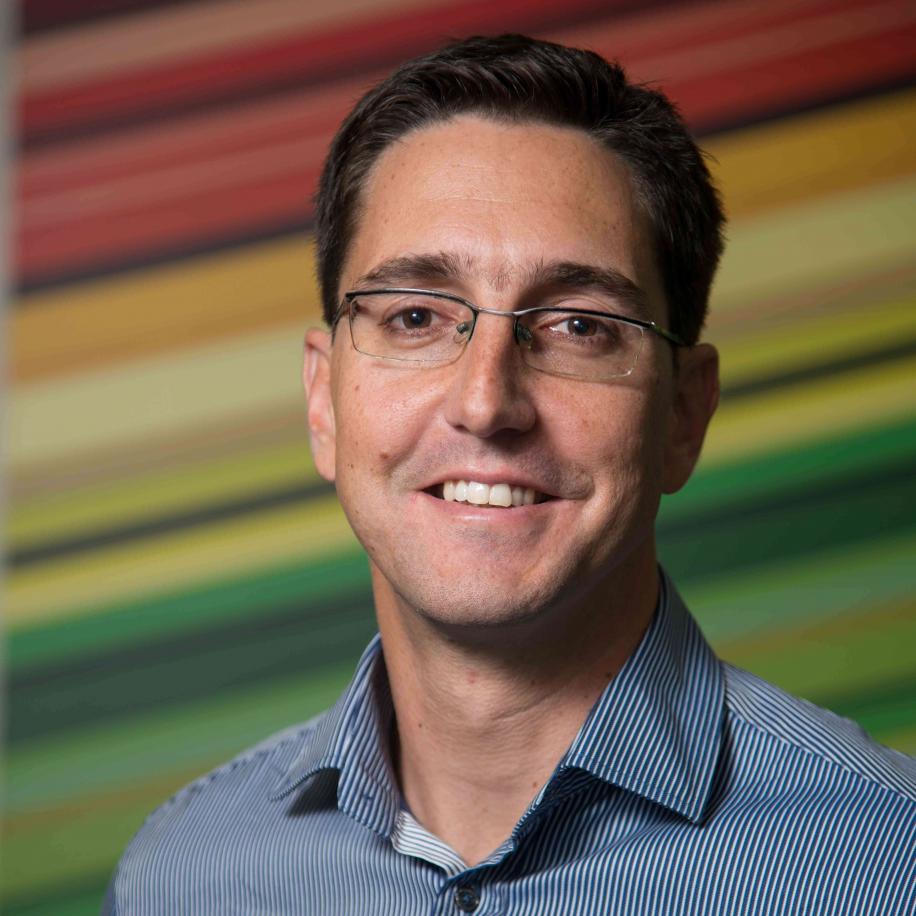‘Let’s unleash full potential of social economy’, World Economic Forum leaders urged at Davos
The power of the social economy to address global crises will be pushed on to the agenda of the World Economic Forum this week, as a landmark report is presented to global leaders when they meet in Davos.
The power of the social economy to address global crises will be pushed on to the agenda of the World Economic Forum this week, as a landmark report is presented to global leaders when they meet in Davos.
 The report, Unlocking the Social Economy: Towards an inclusive and resilient society, published by the Schwab Foundation for Social Entrepreneurship today seeks to convince heads of state, corporate leaders and the general public of the potential of the social economy to tackle the world’s most urgent crises.
The report, Unlocking the Social Economy: Towards an inclusive and resilient society, published by the Schwab Foundation for Social Entrepreneurship today seeks to convince heads of state, corporate leaders and the general public of the potential of the social economy to tackle the world’s most urgent crises.
Offering an introduction to the social economy, a series of policy recommendations to advance the social economy itself, as well as to transform the rest of the economy, the report will be discussed at the Davos meeting in several public sessions as well as in a round table of global leaders.
The result of a collaboration between experts and practitioners from across the social economy – including impact investment, social entrepreneurship, co-operatives and academia – the report aims to give the sector a united voice to deliver a clear message to global leaders as well as the general public.
In a foreword, European Commissioner for jobs and social rights Nicolas Schmit, praised the response of European social economy organisations in assisting people fleeing the war in Ukraine and highlighted the importance of a strong social economy in the wake of the Covid-19 pandemic.
He flagged that Europe’s social economy comprises 2.8m organisations and more than 13m workers. “Let’s unleash the full potential of the social economy across Europe, especially in places where these business models are less developed,” he wrote.
 François Bonnici (pictured), director of the Schwab Foundation for Social Entrepreneurship and head of social innovation at the World Economic Forum, said: “This is more than a report, it is really a starting point, it lays the foundation, it's a tangible product so that we can introduce the conversation to a mainstream audience.”
François Bonnici (pictured), director of the Schwab Foundation for Social Entrepreneurship and head of social innovation at the World Economic Forum, said: “This is more than a report, it is really a starting point, it lays the foundation, it's a tangible product so that we can introduce the conversation to a mainstream audience.”
He added: “And we seek to use the platform of the World Economic Forum, which obviously is around the global economic agenda, to bring the social economy into that realm and out of the space where we discuss it amongst ourselves.”
The move comes at a time when interest for the social economy is growing: the European Commission has recently published its Social Economy Action Plan, the social economy is on the agenda of the upcoming International Labour Conference, and the OECD is looking at designing legal frameworks for social enterprises.
“With all these other things happening, we wanted to bring the power of the World Economic Forum's platform to that momentum,” Bonnici said. “The forum, for all the critique, and what it represents in the world, is also one of the most powerful and influential public engagement platforms.”
Singing together
The research was conducted by the Schwab Foundation, Catalyst 2030 and Euclid Network, supported by Deloitte, as part of the work of the Covid Response Alliance for Social Entrepreneurs and the World Economic Forum’s Centre for the New Economy and Society.
It built on the recommendations of the Working Group on Unlocking the Social Economy which was put together by the Covid Alliance, and reviewed more than 100 research papers in addition to interviews with key experts.
Bonnici said ideological differences about terminology meant the discussion around the social economy had taken “decades” to start coming together as a whole, but the report finally presented a consensus.
It is a bit like we're all singing the same song, but using different tones. And unless we can bring it together as one song, we can't reach mainstream audiences
“The important thing is that there is some coalescing around the term 'the social economy', because it's important for us as a sector to come to the world with one framing that recognises a huge heterogeneity across the world.”
 Paula Woodman (pictured), global head of social enterprise at the British Council and a member of the Working Group on Unlocking the Social Economy, said the process had been “a real melting pot, and it is really important. It is a bit like we're all singing the same song, but using different tones. And unless we can bring it together as one song, we can't reach mainstream audiences.”
Paula Woodman (pictured), global head of social enterprise at the British Council and a member of the Working Group on Unlocking the Social Economy, said the process had been “a real melting pot, and it is really important. It is a bit like we're all singing the same song, but using different tones. And unless we can bring it together as one song, we can't reach mainstream audiences.”
She added the process was about “compromise and collaboration: which of our shared values will be held most centrally in the report? Which of the priorities? How do we get that right balance?”
The report first seeks to demonstrate to a non-specialist audience that the sector is existing and growing, and what it has the potential to achieve. Bonnici added that he expects the public to be “surprised” by the scale and scope of the social economy: in the EU alone,it comprises just over 6% of the total workforce.
Transforming the mainstream economy
The report then sets out two major levers needed to unlock the potential of the social economy: developing the social economy on the one hand, and using the lessons of the social economy to transform the mainstream economy on the other.
Unlocking the potential of the social economyTwo changes are needed to unlock the potential of the social economy to address the world’s most urgent crises, according to the report. Lever 1: developing and strengthening the social economy
Lever 2: using the lessons of the social economy to transform the whole economy
|
Woodman said the latter was particularly important, as reports were often only focused on building a healthy social economy. “We need to have a second lever, which is about mainstreaming our values and our innovative ways of working in the mainstream economy, and therefore scaling our impact, very much thinking of the scale of the crises we see around the world.
“And unless we're trying to leverage that broader change, then what's our theory of change for the social economy? Yes, we want it to thrive. But also, there is a big world out there, a big economy out there, and we need to inform that, connect with that.”
“While we have this working group and members and all our networks around the world, we can't change policies ourselves,” said Bonnici. “But what we can do is bring a level of legitimacy” to social enterprise networks advocating for policy change in a certain country for example that can point to the WEF report as a reference – and the relevant minister could even be in Davos this week, he added.
The report ends with a “2030 vision” that would result from the implementation of its proposals, estimating countries around the world would save trillions of dollars in costs through greater social cohesion and a successful green and digital transitions.
But Woodman sounded a word of caution. While some recommendations were already being implemented, with progress being seen around procurement and education for example, building new legal frameworks could take a long time. “2030 is only eight years away,” she says.
She remains optimistic that the message will be heard. “Things are different at the moment. The scale of the global crises, climate change, the pandemic, migration, conflict, the erosion of democracy – there's such a cocktail at the moment that people are looking for real solutions. And I think once we get the right people on board, including through the WEF Annual Summit, the pace of change could be very quick.”
Thanks for reading Pioneers Post. As an entrepreneur or investor yourself, you'll know that producing quality work doesn't come free. We rely on our subscribers to sustain our journalism – so if you think it's worth having an independent, specialist media platform that covers social enterprise stories, please consider subscribing. You'll also be buying social: Pioneers Post is a social enterprise itself, reinvesting all our profits into helping you do good business, better.



